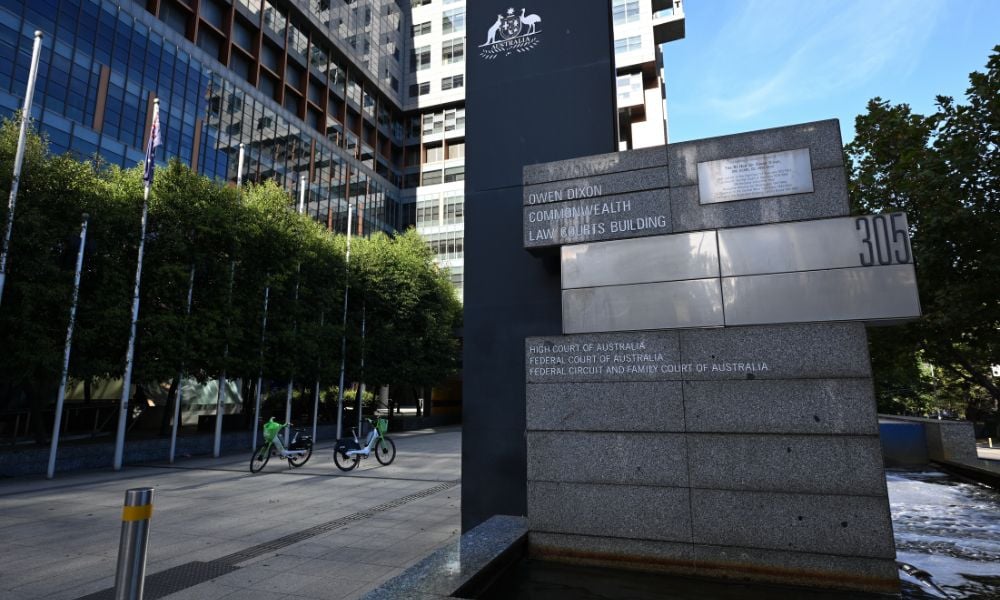
Liquidators claim unreasonable director-related transactions, unfair preference payments

Australia’s Federal Court has allowed an application seeking leave for a joinder in proceedings under r. 9.02 of the Federal Court Rules 2011 (Cth) in a “mothership” proceeding involving allegations of unreasonable director-related transactions and unfair preference payments.
In Modco Residential Pty Ltd (in liq) v Nextruss Steel Pty Ltd, [2025] FCA 518, the liquidators of Modco Residential Pty Ltd brought a statement of claim naming nine defendants. The plaintiffs later agreed to dismiss the proceeding against the fourth and seventh defendants and chose not to pursue the proceeding against the third defendant, a company in liquidation.
According to the plaintiffs, payments that Modco made to the first defendant amounted to unreasonable director-related transactions within the meaning of s. 588FDA of the Corporations Act 2001 (Cth).
The plaintiffs also claimed that the remaining defendants – the second, fifth, sixth, eighth, and ninth defendants – received unfair preference payments from Modco pursuant to s. 588FA of the Corporations Act, which were allegedly voidable under s. 588FE of the Corporations Act.
The present case involved an application for leave for a joinder in the proceeding under r. 9.02 of the Federal Court Rules.
The Federal Court of Australia granted leave, retroactively dated 9 December 2024, for the plaintiffs to continue this single action against the parties joined in the originating statement of claim as defendants, except the third defendant.
The court found that the plaintiffs initiated a “mothership” or “mother” proceeding without addressing the operation of r. 9.02 of the Federal Court Rules when they commenced all their claims through one proceeding.
First, the court determined that the case failed to satisfy r. 9.02(1)(b), which permitted a joinder in the proceedings if all rights to relief that the originating application claimed arose from a single transaction or series of transactions.
The court accepted that common issues arose in the present proceeding. However, the court held that all the rights to relief that the plaintiffs claimed in this proceeding did not arise from the same transaction or events, as shown by their statement of claim.
The court also saw differences in the circumstances in which the second, fifth, sixth, eighth, and ninth defendants allegedly received unfair preference payments.
Next, the court determined that the case did not satisfy r. 9.02(1)(a), in terms of all present claims. This provision allowed a joinder if separate proceedings against the defendants would give rise to a common question of fact or of mixed fact and law.
The court acknowledged the existence of a common issue in each unfair preference claim in connection with the date of Modco’s insolvency, such that the case otherwise met the requirements for r. 9.02(1)(a).
However, the court held that the claim against the first defendant had a different basis. Specifically, it was a claim alleging unreasonable director-related transactions. Thus, the plaintiffs needed the court’s permission under r. 9.02(1)(c) to pursue all their claims in a single proceeding.
The court deemed it appropriate to give the plaintiffs leave under r. 9.02(1)(c). The court noted that overlapping factual issues concerning Modco’s liquidation sufficiently justified uniting the claims against the remaining defendants. The court added that a joinder would promote efficiency.
The court granted the parties liberty to apply, which would enable them to revisit the issue of whether the proceeding should continue separately against the first defendant.
Lastly, the court ordered the plaintiffs to pay the second, sixth, and ninth defendants $750 in costs arising from the interlocutory application filed on 28 March 2025 and incidental to that application.